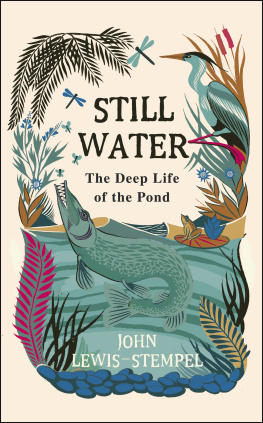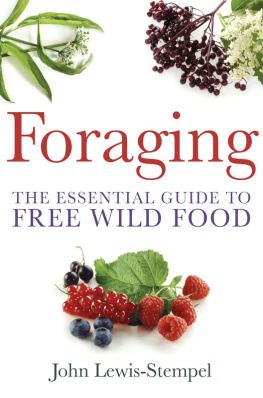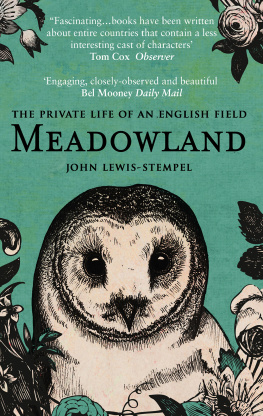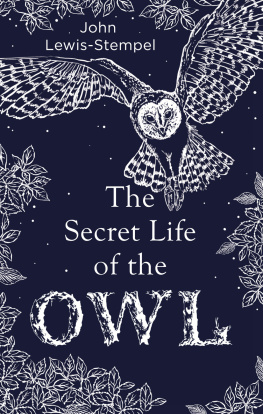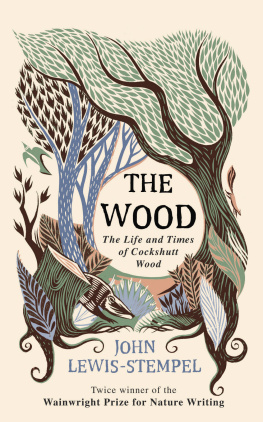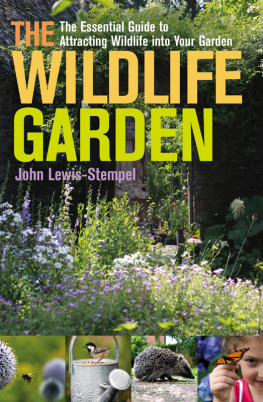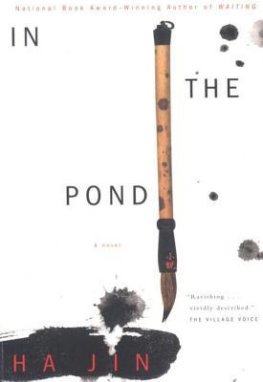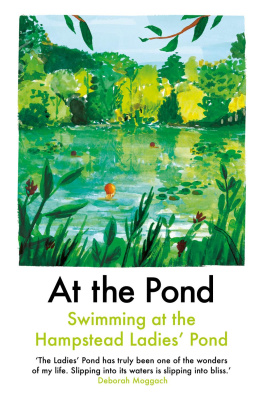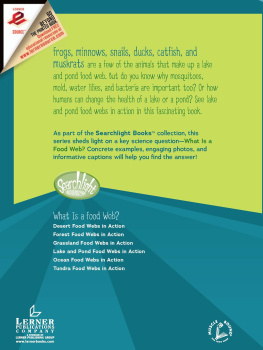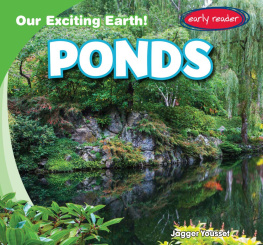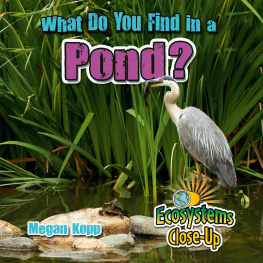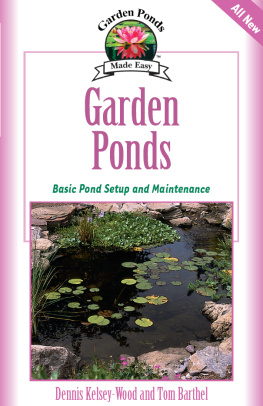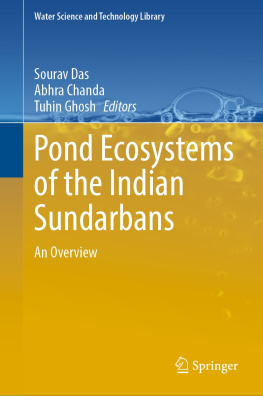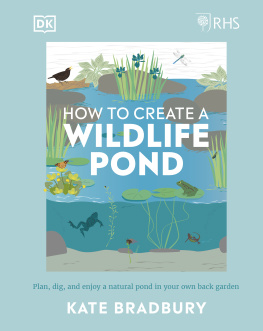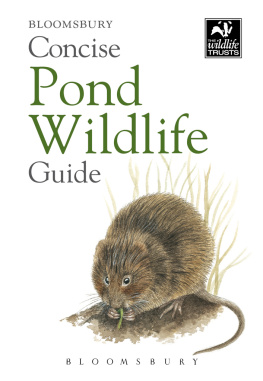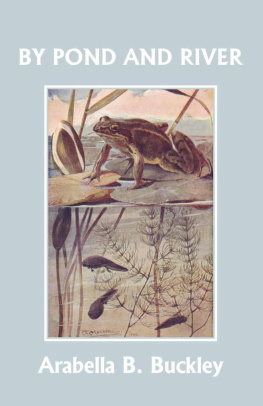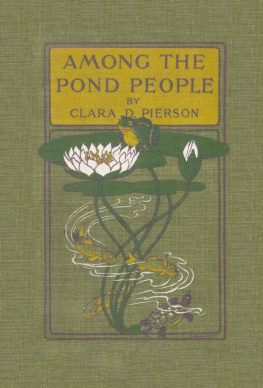Also by John Lewis-Stempel
England: The Autobiography
The Wild Life: A Year of Living on Wild Food
Six Weeks: The Short and Gallant Life of the British Officer in the First World War
Foraging: The Essential Guide
The War behind the Wire: The Life, Death and Glory of British Prisoners of War, 191418
The Wildlife Garden
Meadowland: The Private Life of an English Field
The Running Hare: The Secret Life of Farmland
Where Poppies Blow: The British Soldier, Nature, the Great War
The Secret Life of the Owl
The Wood: The Life and Times of Cockshutt Wood
The Glorious Life of the Oak
Still Water
The Deep Life of the Pond
John Lewis-Stempel

TRANSWORLD PUBLISHERS
6163 Uxbridge Road, London W5 5SA
penguin.co.uk
Transworld is part of the Penguin Random House group of companies whose addresses can be found at global.penguinrandomhouse.com.

First published in Great Britain in 2019 by Doubleday
an imprint of Transworld Publishers
Copyright John Lewis-Stempel 2019
Cover design by Beci Kelly/TW
John Lewis-Stempel has asserted his right under the Copyright, Designs and Patents Act 1988 to be identified as the author of this work.
Extracts from Some Thoughts on the Common Toad and Coming Up for Air from The Complete Works of George Orwell, published by Secker, copyright 1999, reprinted by permission of The Random House Group Limited. Extracts from Peter Scott: Painter and Naturalist by Elspeth Huxley, reprinted by permission of The Random House Group Limited.
Every effort has been made to obtain the necessary permissions with reference to copyright material, both illustrative and quoted. We apologize for any omissions in this respect and will be pleased to make the appropriate acknowledgements in any future edition.
A CIP catalogue record for this book is available from the British Library
ISBN 9781473542525
This ebook is copyright material and must not be copied, reproduced, transferred, distributed, leased, licensed or publicly performed or used in any way except as specifically permitted in writing by the publishers, as allowed under the terms and conditions under which it was purchased or as strictly permitted by applicable copyright law. Any unauthorized distribution or use of this text may be a direct infringement of the authors and publishers rights and those responsible may be liable in law accordingly.
Not a fish can leap or an insect fall on the pond but it is thus reported in circling dimples, in lines of beauty, as it were the constant welling up of its fountain, the gentle pulsing of its life, the heaving of its breast.
Henry David Thoreau, Walden
Prologue
I swim with slow strokes, enough to keep me moving forward, not sinking.
This is the farm pond, seen anew: the frogs eye view. Breast-stroking, my legs scissoring behind me, I feel amphibian.
I make no sound as I cruise in a circle, a twenty-five-metre ripple-ring.
The water is cold silk, closing around my back as I finish each stroke.
In modern argot I am wildswimming; as a child in the 1970s, our gangs trips to the River Lugg at Mordiford were merely swimming. Everything that was once ordinary has to be bered.
When I came up to the pond half an hour ago it was as flat as a silver coin; a breeze has begun to ruffle the water. On the bank, tall swords of yellow iris, already in flower, sway tipsily.
But it is dreamy warm, and the air is lazy with the drone of hoverflies in those daffodilly iris.
You might think a swim like this, in a pond with the midges as thick as mesh, silly. But I have an affinity with ponds, I feel the instinct strongly to visit every one, and pootle about their edge. And then it occurred to me this fine June morning, that perhaps the real way to enjoy the small, still waters is from within. From the centre looking out, not the outside looking in. To become pond life.
A damselfly flickers around; a red-hot darning needle probing the sedge.
The moorhen momentarily peers out from under the overhanging sallow, then withdraws to her shadow-cave to continue her disconsolate clucking unseen. The great white frog, me, is still there.
Lapping water disturbs a mat of fallen iris stems; a real frog plops off, down into the plants roots, dark and thick as old ships rope.
The pond is brim-full, from the winters rain and the spring that feeds into its base. The water is at its clearest now; come August, summer sun will have reduced the level, and the pond will have its familiar stink of wet dog, rotting veg.
My eyes two inches above the surface of the water, I swim another circle of this closed world, with its circular bright green rim of iris, sedge and waterweeds; wild celery, water crowfoot, brooklime, water forget-me-not, water dock, water starwort, water plantain, water speedwell.
A breath of watermint comes over the surface of the pond, from leaves crushed by the cautious fox when he came down to lap the night water. Watermint is concealment for Mr Tod, both for its physical structure and its perfume. The herb, in medieval times, was strewn on the floors of houses to disguise smell.
Alder trees top and tail the pool, sheltering it from the north wind and the south sun and making it attractive to mallard. There is a clump of rabbity bramble too. Wild duck dislike open water inland. The resident female mallard, made flightless by motherly love, paddles through the edge scum and algae, which break apart to leave a clear path for her three bobby ducklings. Duck and duckettes exit by the mud slipway, where the cattle come down to drink in August; the birds disappear away into the buttercups.
Today, the Friesian cows stand on the steep adjacent hill, as though stacked on each others backs in an acrobats pyramid. The hill is the one topographical object visible above the herbage of the pond. There is only the hill, the sky, the pond and me.
A newt hangs in the water, regards me, then zips off. A pied wagtail totters back and forth on the cows access ramp, absorbed in her insecty business. A darter hitches a lift on my nose; a member of the dragonfly family, the darter is among the most ancient species on the planet, 300 million years old. Dragonflies endow a pond with timelessness.
I am the frog-man, and in this guise the majority of the animals and birds feel no threat from me. It is the same easy closeness one gets to wildlife on the back of an equine, when one is a horse-man.
As I bring my arms together for another pull through the water, a backswimmer (Notonecta glauca) rises in front of my face, before diving down again, a beetly mercury oblong. The backswimmer holds air bubbles on its chest; natures version of oxygen cylinders.
In this pond of verdancy and forgetfulness, I am not entirely at ease. The backswimmer, for all its air-carrying cleverness, is a 1.5cm carnivorous monster which stabs its victim with its feeding beak (rostrum), before injecting a toxic juice that paralyses and liquefies the innards of said victim. Tadpoles are a staple food.
I was once bitten by a backswimmer; its as bad as being stung by a bee.
Down somewhere in the depths slithe the carp, great grey submarines. I fear the touch of their alien skin.
In the pond there are wondrous, multitudinous life forms. And curious cruelties.
Swimming in the pond, I find, is part pleasure, part frisson; part surface-seen, part submerged-mystery. I am half in my element in the pond; after all, about 50 per cent of the human body is made up of H2O.

